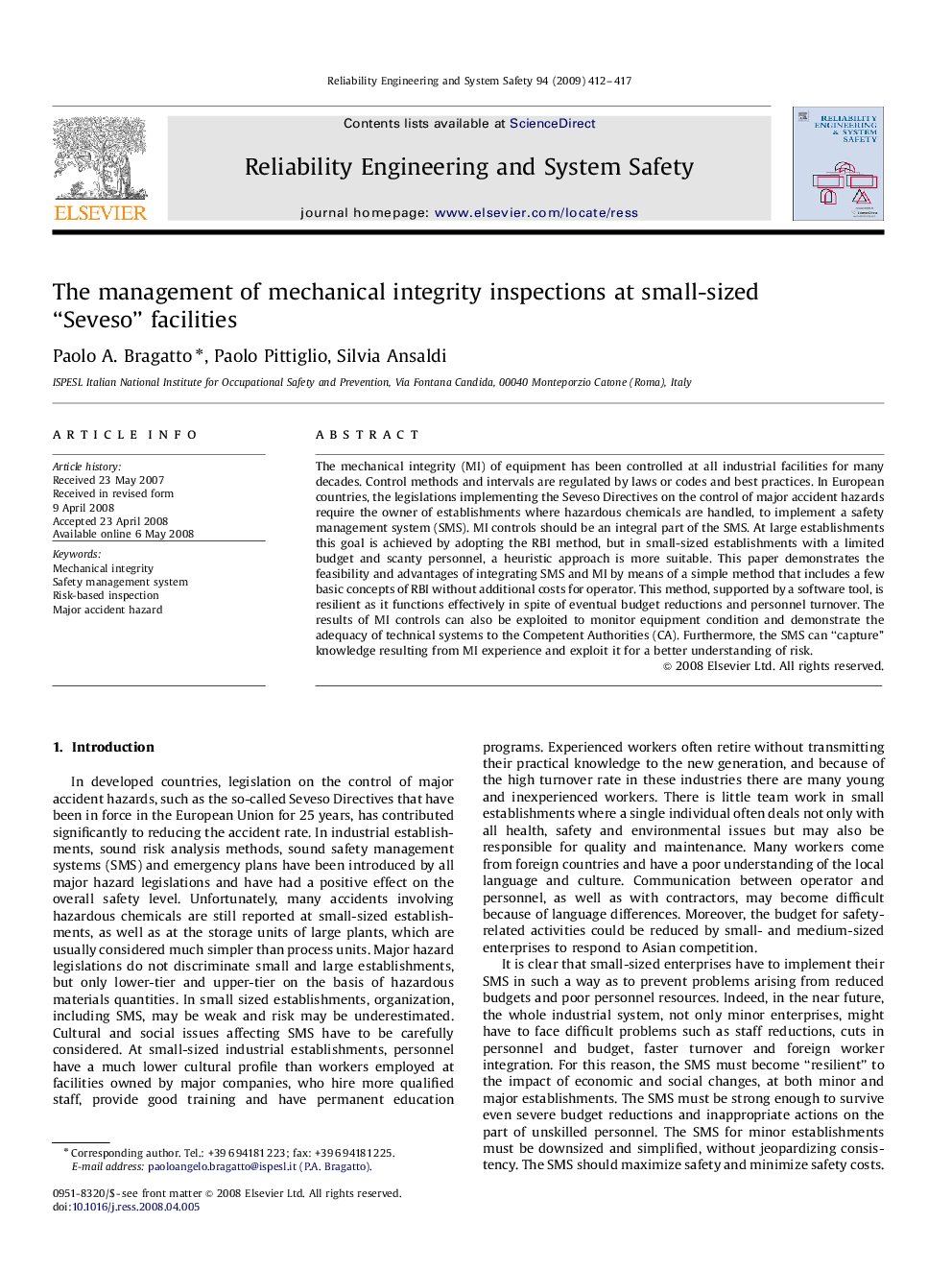| Article ID | Journal | Published Year | Pages | File Type |
|---|---|---|---|---|
| 805979 | Reliability Engineering & System Safety | 2009 | 6 Pages |
The mechanical integrity (MI) of equipment has been controlled at all industrial facilities for many decades. Control methods and intervals are regulated by laws or codes and best practices. In European countries, the legislations implementing the Seveso Directives on the control of major accident hazards require the owner of establishments where hazardous chemicals are handled, to implement a safety management system (SMS). MI controls should be an integral part of the SMS. At large establishments this goal is achieved by adopting the RBI method, but in small-sized establishments with a limited budget and scanty personnel, a heuristic approach is more suitable. This paper demonstrates the feasibility and advantages of integrating SMS and MI by means of a simple method that includes a few basic concepts of RBI without additional costs for operator. This method, supported by a software tool, is resilient as it functions effectively in spite of eventual budget reductions and personnel turnover. The results of MI controls can also be exploited to monitor equipment condition and demonstrate the adequacy of technical systems to the Competent Authorities (CA). Furthermore, the SMS can “capture” knowledge resulting from MI experience and exploit it for a better understanding of risk.
